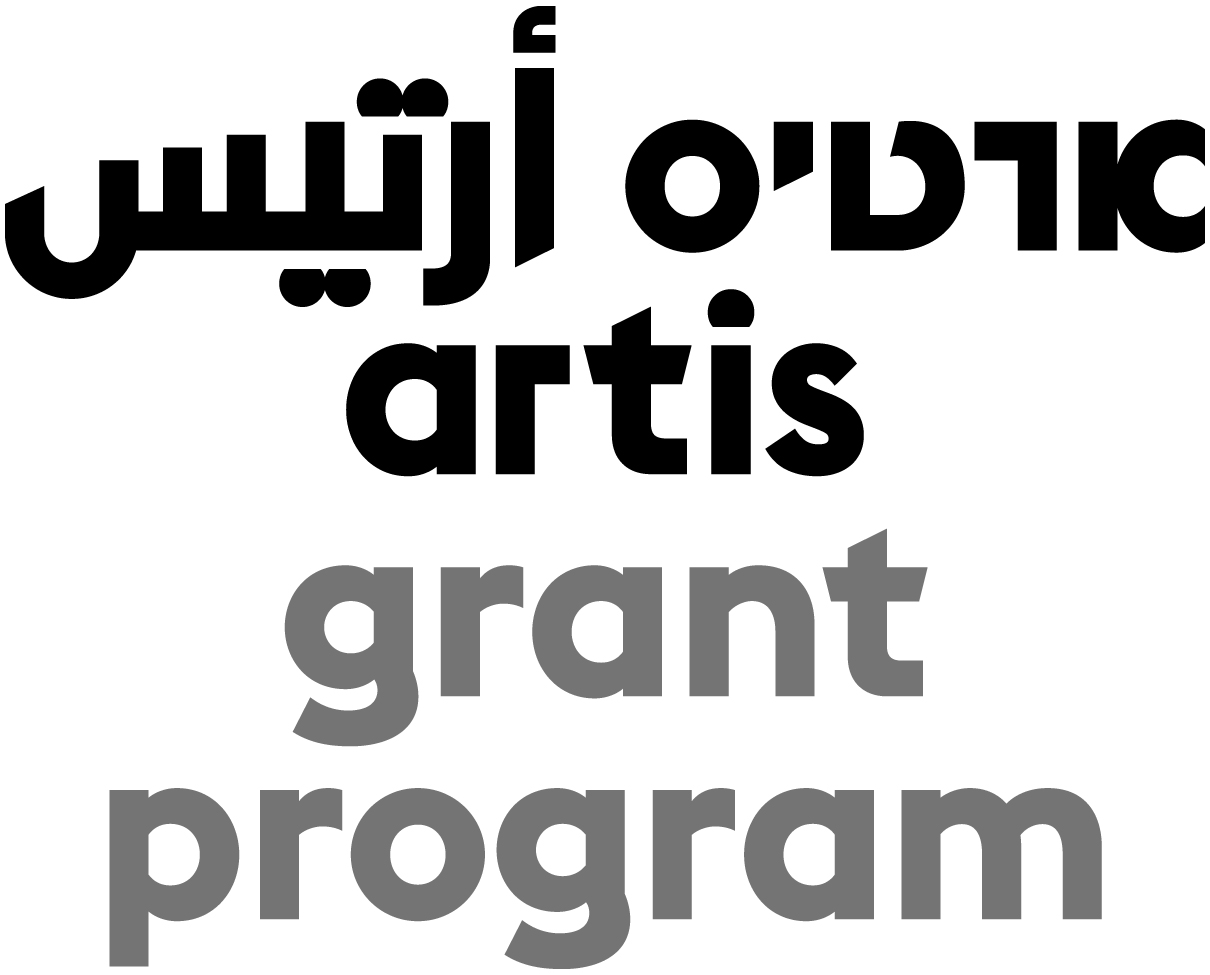Cursed Spirits, Exercises in Continental Philosophy
Media installation: Costume-made camera and software, infra-red illumination, sensors, light, sound and video 50 min

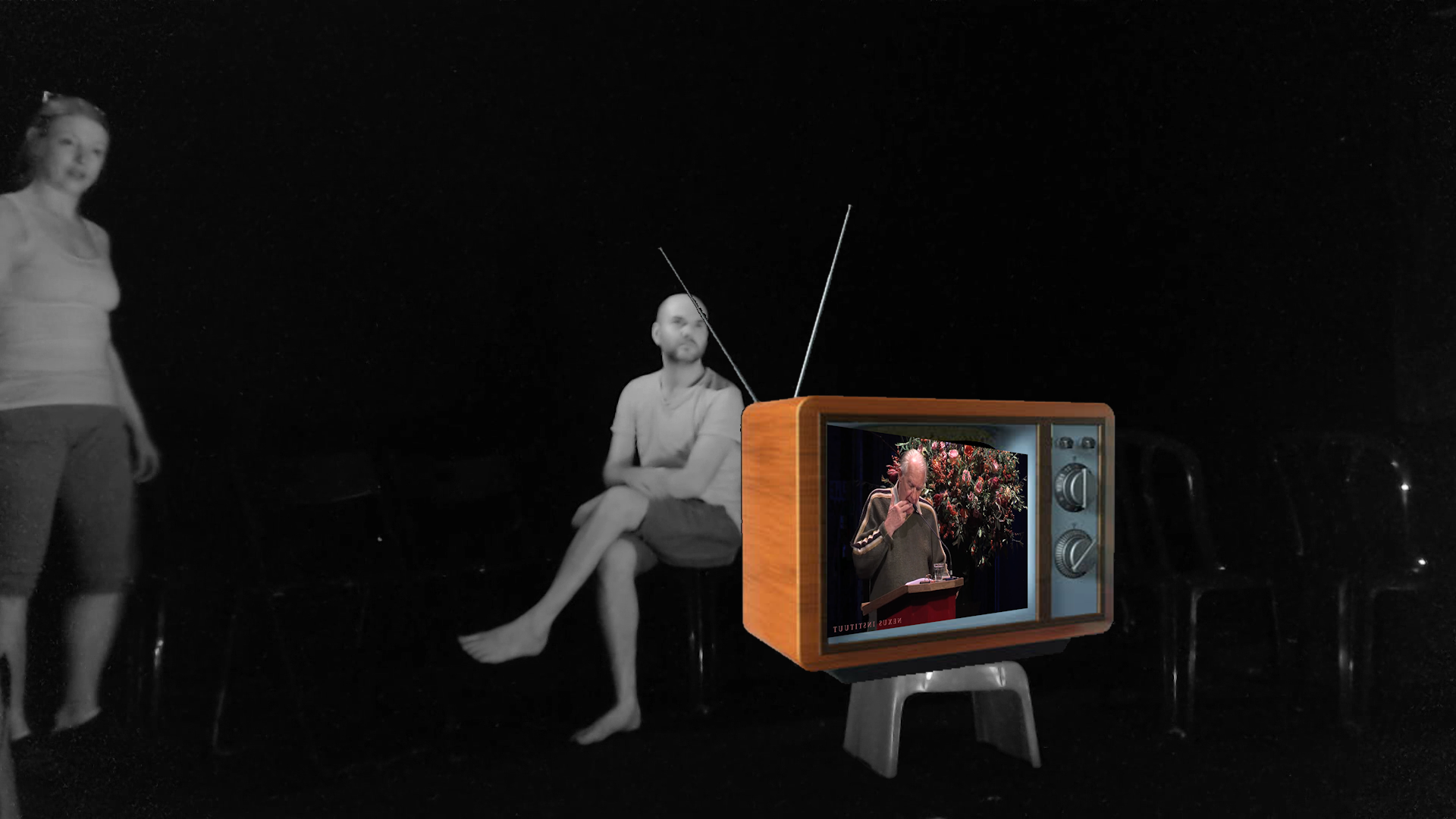

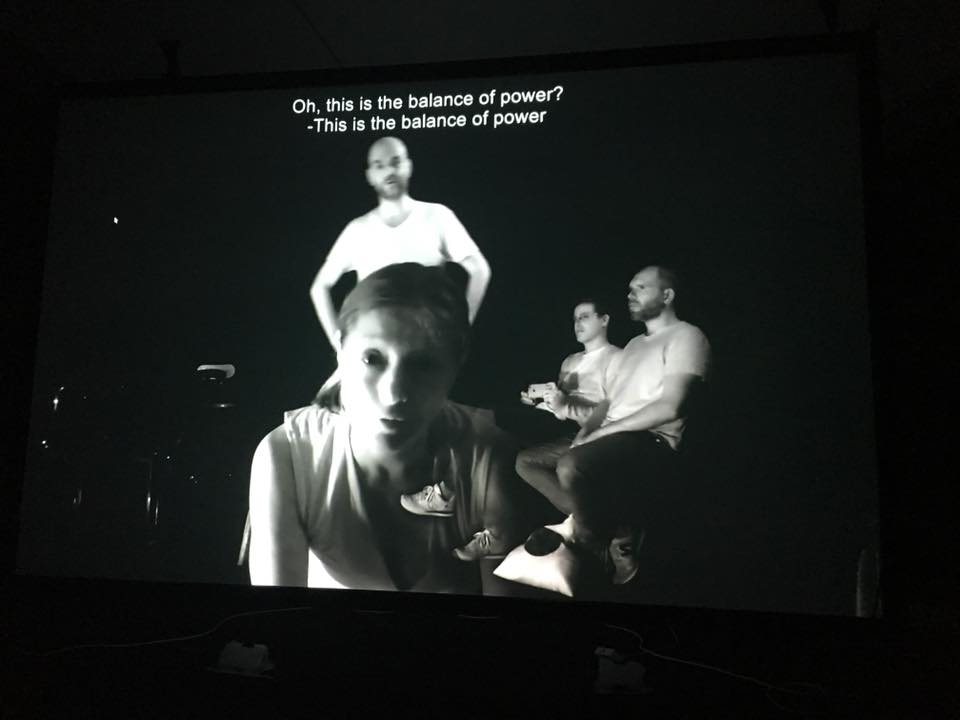
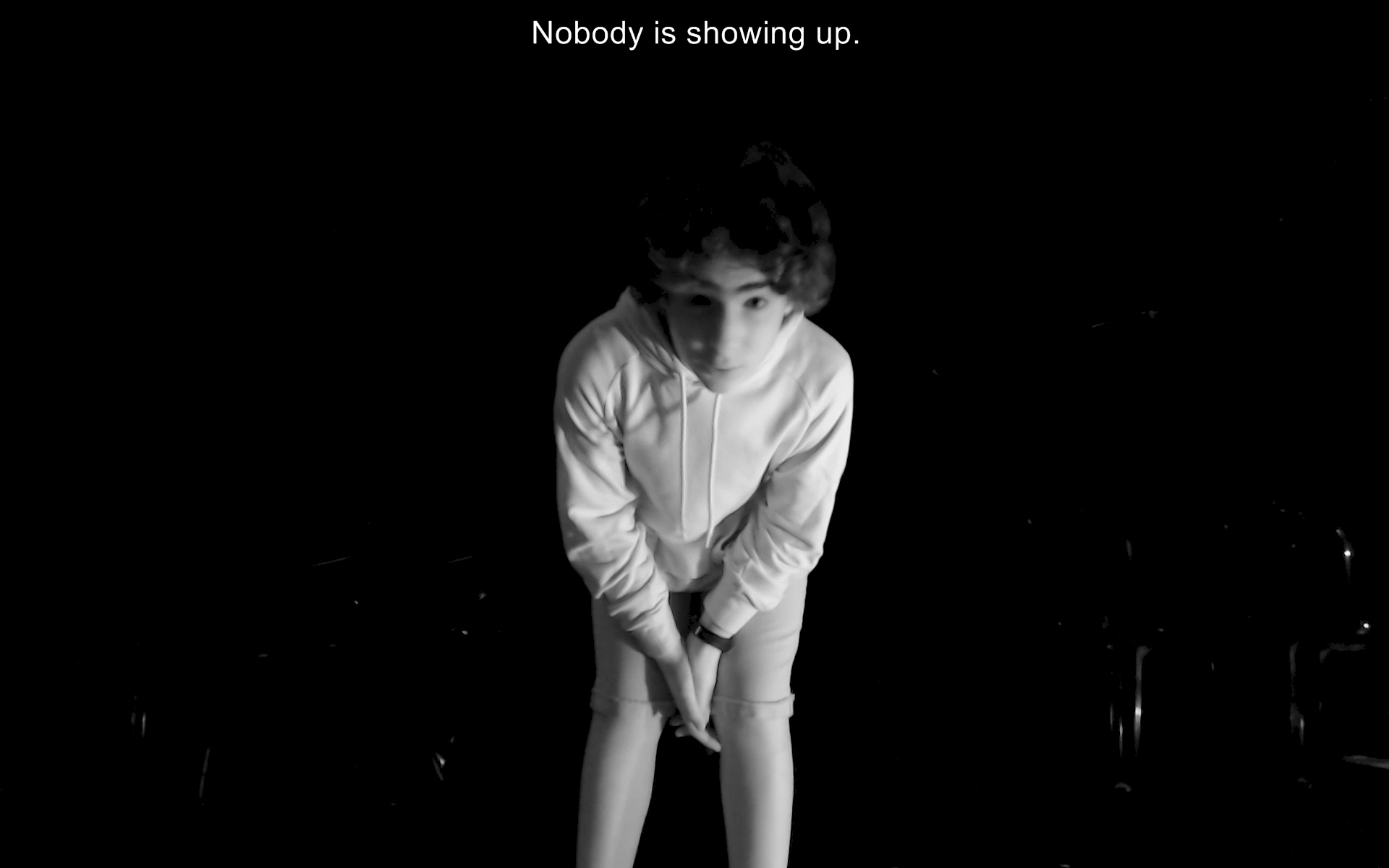

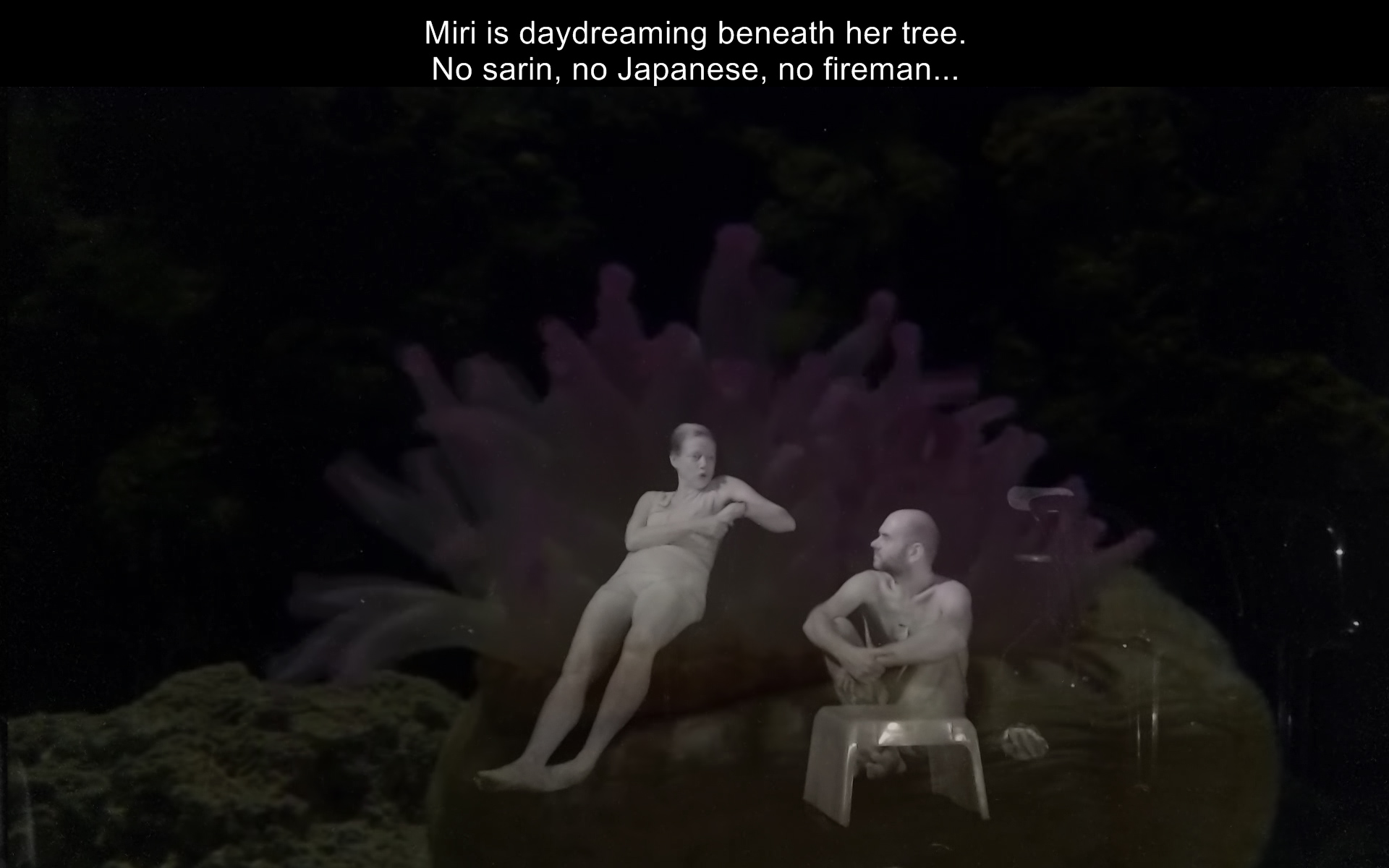


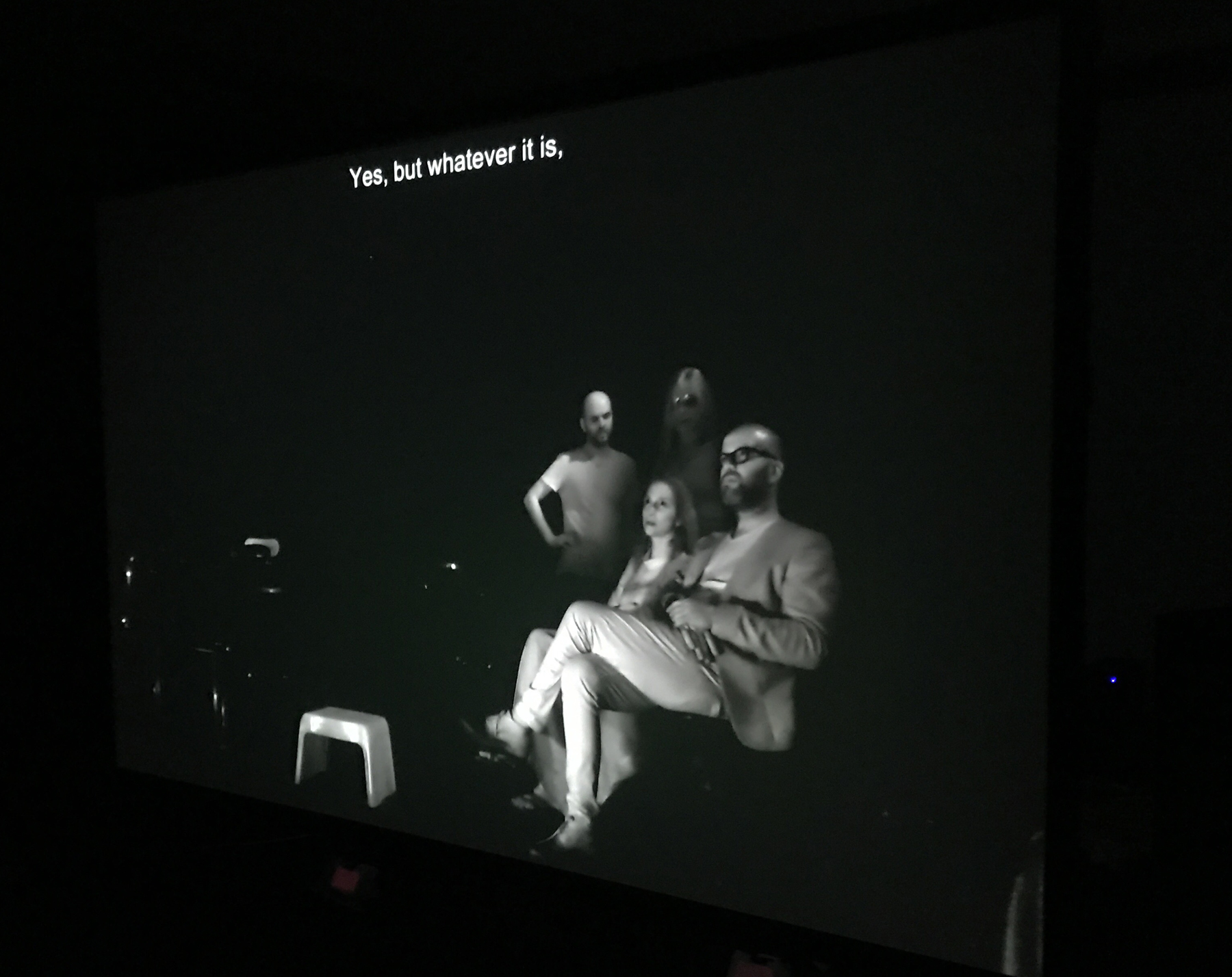
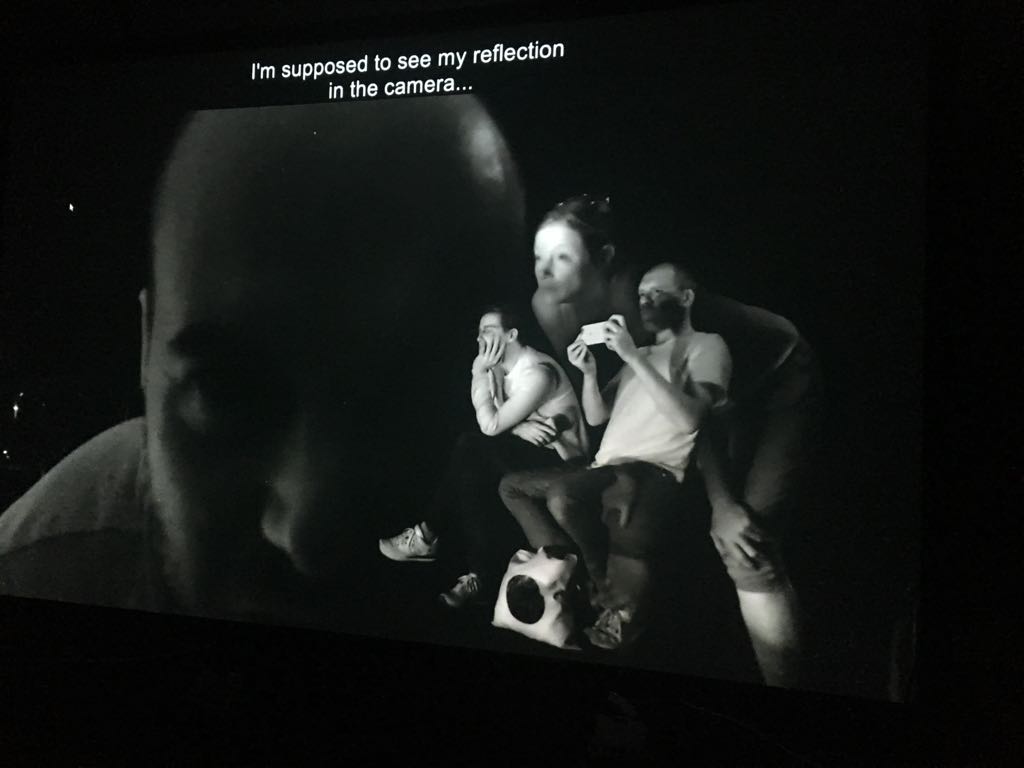
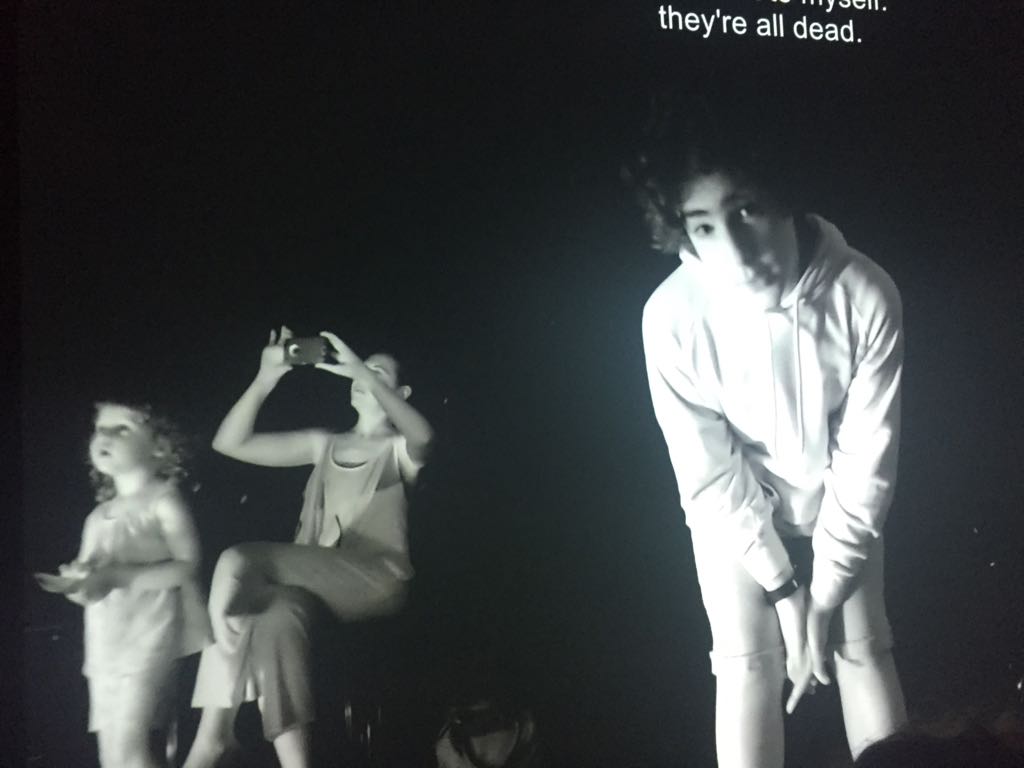
Written and directed with: Yoni Niv
Technology: Israel Levin, Nimrod Kerret
Participated and took part: Michael Gurevitch and Solo Geva
The work was generously supported by the Cultural Council of the Israel National Lottery - Mifal HaPais.

Technology: Israel Levin, Nimrod Kerret
Participated and took part: Michael Gurevitch and Solo Geva
The work was generously supported by the Cultural Council of the Israel National Lottery - Mifal HaPais.

In this work, viewers are invited to enter a darkened space, to observe – and take part – in a theatrical performance that is projected on a large screen, which looks at times as though it is still at the stage of rehearsal and improvisation. The viewers’ own image is captured in real time by a camera, and becomes an integral part of the action on screen – their presence given equal footing as the actors’ reflections, the pale and unnatural quality of the image suggesting a phantom presence.
The filmed script was written and directed by Miri Segal in collaboration Yoni Niv. They also play the lead roles in it, along with director Michael Gurevich and the child actor Solo Geva. The script is based on the play Ahmed the Philosopher (1995) by the French philosopher Alain Badiou (b. 1937). In a tribute to Badiou’s research and teachings, Segal preserves his avant-garde spirit. He himself also appears, in a clip from his lecture “On Happiness,” on a television screen in one of the scenes. Of his original play – which is structured as a series of 34 lessons on philosophical questions that use comedy in the service of philosophical inquiry – three lessons were chosen: “Nothing,” “The Subject,” and “Death”. The experimental theater that Badiou espouses is one of contemplation; it is not merely a site of emotional purification (catharsis) and a play on identification or reflection, but also a means of disassembling and assembling reality. In “Cursed Spirits” the relationship between the characters is erratic (ranging between aggression, provocation, humor, and passion), and the dialogues likewise swing, pendulum-like, between reality and acting, scripted reality and playful fantasy. While the first two Acts are about negation and failure of realization or accomplishment of all sorts, in Act III, “On Death” (reproduced in its entirety from Badiou’s play), the opposite is the case, and the discussion about death – as in the Orpheus myth – is an attempt to address “the secret of life.”
text: Aya Lurie
The filmed script was written and directed by Miri Segal in collaboration Yoni Niv. They also play the lead roles in it, along with director Michael Gurevich and the child actor Solo Geva. The script is based on the play Ahmed the Philosopher (1995) by the French philosopher Alain Badiou (b. 1937). In a tribute to Badiou’s research and teachings, Segal preserves his avant-garde spirit. He himself also appears, in a clip from his lecture “On Happiness,” on a television screen in one of the scenes. Of his original play – which is structured as a series of 34 lessons on philosophical questions that use comedy in the service of philosophical inquiry – three lessons were chosen: “Nothing,” “The Subject,” and “Death”. The experimental theater that Badiou espouses is one of contemplation; it is not merely a site of emotional purification (catharsis) and a play on identification or reflection, but also a means of disassembling and assembling reality. In “Cursed Spirits” the relationship between the characters is erratic (ranging between aggression, provocation, humor, and passion), and the dialogues likewise swing, pendulum-like, between reality and acting, scripted reality and playful fantasy. While the first two Acts are about negation and failure of realization or accomplishment of all sorts, in Act III, “On Death” (reproduced in its entirety from Badiou’s play), the opposite is the case, and the discussion about death – as in the Orpheus myth – is an attempt to address “the secret of life.”
text: Aya Lurie

“....
Miri: Okay, but before I go out, can I ask you something?
Yoni: The director.
Miri: I want you to dedicate this piece to anyone who ever thought himself to be a zero, to anyone who shudders at nothing, to all the clowns, dedicate it to me, okay?
Yoni (as Ahmed): What are you looking at? There’s nothing here. Me, Ahmed, I’m absolutely
nothing. Superlatively nothing. And, believe me, looking at nothing is exactly the same as
not looking. Check out how I’m nothing.
....
Miri: Okay, but before I go out, can I ask you something?
Yoni: The director.
Miri: I want you to dedicate this piece to anyone who ever thought himself to be a zero, to anyone who shudders at nothing, to all the clowns, dedicate it to me, okay?
Yoni (as Ahmed): What are you looking at? There’s nothing here. Me, Ahmed, I’m absolutely
nothing. Superlatively nothing. And, believe me, looking at nothing is exactly the same as
not looking. Check out how I’m nothing.
....
“ ...By the invention of a new form of happiness which is victory against the potency of death, that is
the potency of the patience to stay in your place... at the very important moment of the french revolution, the great french revolution, one of the great actors and thinkers of this political swing Saint-Just has said: “happiness is a new idea in Europe!” [reflecting]
... Happiness is a new idea in Europe... Maybe we must create the condition to say the same thing
... we know that something is changing in the world when we experiment that happiness is not the pre-determinant goal of the movement, but the inventive subjectivization of the movement itself”
Alan Badiou - On Being Happy
the potency of the patience to stay in your place... at the very important moment of the french revolution, the great french revolution, one of the great actors and thinkers of this political swing Saint-Just has said: “happiness is a new idea in Europe!” [reflecting]
... Happiness is a new idea in Europe... Maybe we must create the condition to say the same thing
... we know that something is changing in the world when we experiment that happiness is not the pre-determinant goal of the movement, but the inventive subjectivization of the movement itself”
Alan Badiou - On Being Happy

 Miri Segal: Miriage is supported by the
Miri Segal: Miriage is supported by the
